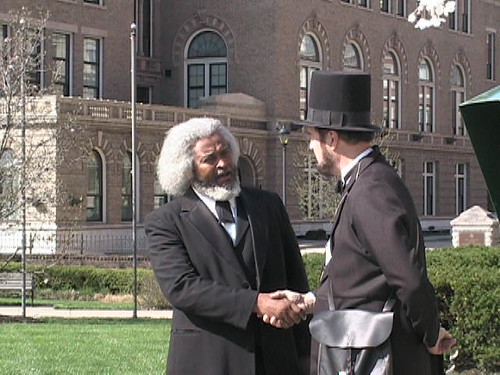
Thomas Sowell wrote this article about the human condition of using envy, hate, and fear to grab power.
An excerpt -
There is an old Russian fable, with different versions in other countries, about two poor peasants, Ivan and Boris. The only difference between them was that Boris had a goat and Ivan didn't. One day, Ivan came upon a strange-looking lamp and, when he rubbed it, a genie appeared. She told him that she could grant him just one wish, but it could be anything in the world.
Ivan said, "I want Boris's goat to die."
Thomas Sowell went on to explain how this old Russian fable tells us something painful about many Americans today, when so many people are preoccupied with the pay of corporate CEOs. It is not the general public that singles out corporate CEOs for so much attention. Politicians and the media have focused on business leaders, and the public has been led along, like sheep.
Those who want more power have known for centuries that giving the people somebody to hate and fear is the key.
This article jarred my memory about a book written by Henry Thoreau, Walden Pond.
Walden's original title page...The drawing is by Henry's sister, Sophia Thoreau. The text under the drawing is:
I do not propose to write an ode to dejection, but to brag as lustily as chanticleer in the morning, standing on his roost, if only to wake my neighbors up.
In this book Thoreau spells out the basics that are necessary. an excerpt -
The necessaries of life for man in this climate may, accurately enough, be distributed under the several heads of Food, Shelter, Clothing, and Fuel; for not till we have secured these are we prepared to entertain the true problems of life with freedom and a prospect of success.
Each individual is going to secure these necessaries of life in differing amounts, and we have got to let go of envy for those who have more than others. The envy and the hate that follows will not get you any more of the necessaries. All that hate can do is spread the misery.
Let's expand on this fable from the economy to entertaining the problems of life with freedom and a prospect of success. Why was so much effort made to ban a ballot initiative in California that defines marriage as only between one man and one woman? It had nothing to do with the necessaries of life, and it would not add any additional legal rights that citizens of California already have.
There are some in the gay community who want everyone to applaud and approve of their sexual activity. It is not enough for them to be legally protected from harassment. They want everyone to approve and appreciate their sexual activity.
They see the traditional family respected and admired in the community, and this brings them envy followed by hate. When they can't have what they want they become Ivan wanting Boris's goat to die.


































